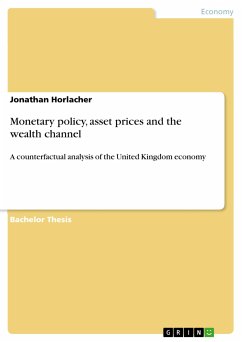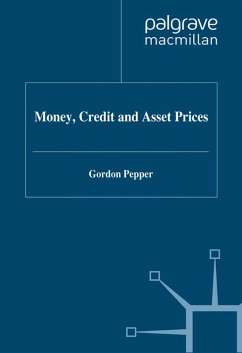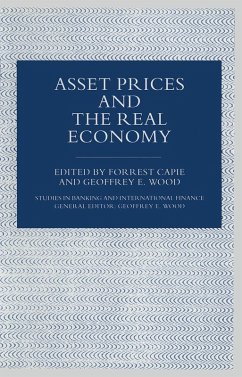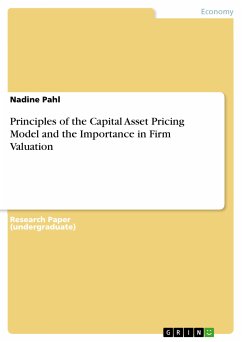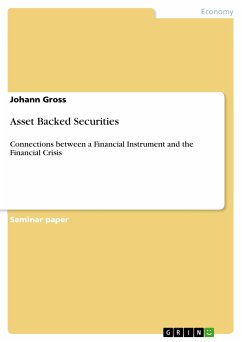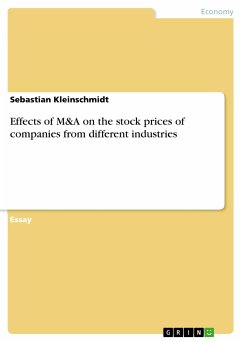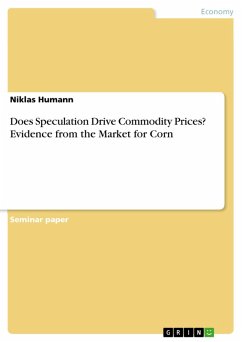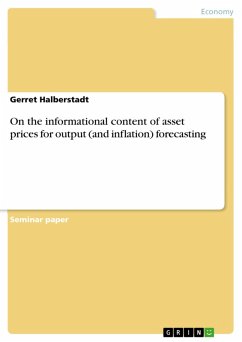
On the informational content of asset prices for output (and inflation) forecasting (eBook, PDF)
Sofort per Download lieferbar
Statt: 18,95 €**
16,99 €
inkl. MwSt. und vom Verlag festgesetzt.
**Preis der gedruckten Ausgabe (Broschiertes Buch)
Weitere Ausgaben:

PAYBACK Punkte
0 °P sammeln!
Seminar paper from the year 2014 in the subject Economics - Finance, grade: 1.0, Christian-Albrechts-University of Kiel, language: English, abstract: That financial markets can influence real economic activity has been accepted by economists long ago and became dramatically apparent again in the last financial crisis, when the sharp decline in housing prices in the US was followed by a severe recession. In general, asset prices are determined in a forward-looking manner, stock prices for example reflect the expected profitability of firms in the future and thus are linked to expected future ec...
Seminar paper from the year 2014 in the subject Economics - Finance, grade: 1.0, Christian-Albrechts-University of Kiel, language: English, abstract: That financial markets can influence real economic activity has been accepted by economists long ago and became dramatically apparent again in the last financial crisis, when the sharp decline in housing prices in the US was followed by a severe recession. In general, asset prices are determined in a forward-looking manner, stock prices for example reflect the expected profitability of firms in the future and thus are linked to expected future economic conditions. Furthermore, many macroeconomic models suggested by economic theory in-corporate interest rates, interest spreads or exchange rates, which can be seen as some sort of financial assets, and believing in these models means believing that asset prices influence developments of macroeconomic v ariables in the future. These considerations and observations gave rise to examine the pre-dictive power of asset prices to forecast output and inflation and a survey of this literature as well as empirical tests for a variety of predictors in different countries can be found e.g. in Stock and Watson (2003).
Dieser Download kann aus rechtlichen Gründen nur mit Rechnungsadresse in A, B, BG, CY, CZ, D, DK, EW, E, FIN, F, GR, HR, H, IRL, I, LT, L, LR, M, NL, PL, P, R, S, SLO, SK ausgeliefert werden.





